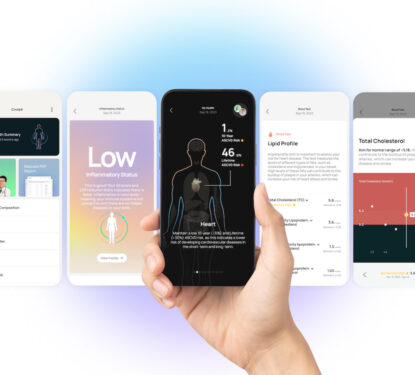
Tricia Yap, Functional medicine coach and founder of Limitless, talks us through the many reasons why you could be feeling abnormally tired, and what to do about it.

Have you been waking up with no energy? Dragging yourself through the day propped up by regular coffee breaks, and feeling little motivation to get things done? Are you feeling more reactive to stress and easily overwhelmed? Constantly feeling tired is NOT normal, particularly if you have been feeling exhausted for weeks and months. If this sounds familiar, there are five health markers that you might want to get checked out.
Are you hydrated?

While we know that red blood cells help deliver oxygen and nutrients all over our body, we often forget that water plays a key role in this. If you’re dehydrated, your cells will hold water, which will impact nutrient assimilation. The simplest way to see if you are dehydrated is to check your urine. The clearer the better!
Are you recovering well?
If you are waking up tired every morning, it is worth analysing your sleep quality. There are four distinct stages of sleep: awake, light, deep and REM. Ideally we want to make sure we are getting sufficient deep sleep, which is when the body recharges adrenals, boosts immune function and regulates appetite hormones.
It’s worth checking in on your HRV (heart rate variability) and HRV trends. Think of HRV as a measure of your body’s battery – how ready you are both mentally and physically for the day’s work ahead. If your HRV is trending lower than average, this shows that you are currently not recovering well and you may need to adjust your lifestyle choices to aid recovery. This could mean increasing physical activity, changing your workout style for those who are active but could be overdoing it, or just having a quiet night in once in a while. I that find many people are more worried about their phone battery than their body battery!
One of the best wearables for recoverability analysis is the Oura ring, which tracks and analyses sleep, HRV trends, blood oxygen, body temperature and much more.
Do you have gut dysfunction?
Analysing your gut microbiome and intestinal health status via GI map can tell you a lot about why you’re feeling what you are feeling.
Last year, I felt I had no energy at all. I thought that it was partly due to hitting the big 4-0 (refund anyone?) and partly the long-term stress and exhaustion of Covid. As it was my milestone year, I decided to run some comprehensive tests to check in with my body. Turns out – I had a parasite! This was causing me to feel tired, bloated, and not satiated after meals. It was even messing with my menstrual cycle. Removing it and restoring my gut function help to bring my energy levels right back. I even lost a few kilos because my appetite regulation and digestion was restored.
Low energy isn’t always caused by a parasite. “Leaky gut,” which is actually increased permeability in the normally selectively permeable gut lining, resulting in an increase of pathogens and bad bacteria, will contribute to fatigue. However, if you have had long-term gut related symptoms such as bloating, gas, constipation, diarrhoea, acid reflux, painful cramps after meals and changes in appetite alongside fatigue, getting a GI map done can make a big difference.
What do your continuous blood sugar patterns look like?

I use continuous glucose monitoring as a powerful tool to see how diet and lifestyle choices affect a person’s blood sugar. While we know that long- and even short-term high blood sugar is bad, short-term low blood sugar is also not good. Your blood sugar can increase in stressful situations, such as sport, an argument or a work meeting. When a meal, event or activity triggers a sharp increase in blood sugar, a sharp decrease follows. This results in a drop in energy and potential food craving. The body wants to up its sugar, and so it releases cortisol, the stress hormone. If this happens in the evening, it can keep you up at night and sap your energy during the day.
Are you suffering from adrenal dysfunction?
The adrenal glands aren’t just responsible for our flight or fight hormones, but also our sex hormones such as DHEA, testosterone, estrogen and progesterone. It is not uncommon for women who are in perimenopause or menopause to feel more tired than usual and have a lower tolerance for stress.
Adrenal dysfunction can come in different forms, so analysing your cortisol patterns and sex hormones via a DUTCH test can reveal causes for fatigue or low motivation. If your tiredness is accompany by occasional dizziness, dry mouth, stubborn belly fat, anxiety or changes in your menstrual cycle, you might want to try a DUTCH test.
At Limitless, we offer 1:1 functional medicine health coaching and personal training with a “deep health” approach that combines movement, body, and hormone analysis such as GI map, Dutch test, and more.
In partnership with Limitless






